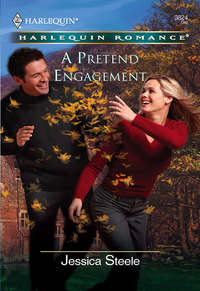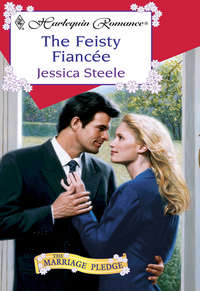
Полная версия
The Right Bride?: Bride of Desire / The English Aristocrat's Bride / Vacancy: Wife of Convenience
‘That,’ her mother said sharply, ‘is not funny.’
But I, thought Allie, wasn’t joking.
Her attitude to Hugo Marchington had always been ambivalent. At first she’d been convinced she was falling in love, carried away by the sheer glamour of him. She’d frankly enjoyed dining in top restaurants, being whisked off to polo matches, race meetings, regattas, and all the other leading events in the social calendar.
But, as weeks had become months, she’d realised that she simply did not know her own mind. And if he was indeed planning to ask her to become engaged to him, as she’d suspected, she had no real idea of what answer to give him. Which, by then, she should have done.
Naturally, she’d been flattered. Who wouldn’t have been? In previous eras Hugo would have been considered the catch of the county, because he was rich, handsome, and he could be charming.
Yes, she thought. That was the sticking point. Could be—but wasn’t always. In fact he’d sometimes revealed the makings of a nasty temper, although he had invariably been contrite afterwards.
And, in spite of all the assiduous attention he’d paid her, she hadn’t been altogether convinced that his heart was in it. He might, in fact, have been behaving as he was expected to do.
At the beginning of their relationship he’d made a couple of serious attempts at seduction, which Allie had fended off just as seriously. He hadn’t repelled her physically—but nor had he stirred her blood to the point of surrender. His kisses had never made her long for more. But she’d been aware that could have been due to an element of emotional reserve within herself, which, in turn, gave her an aura of coolness that some men might find a challenge.
At any rate, she’d known that giving herself in the ultimate intimacy would have implied a level of commitment that she had simply not been prepared for. Or not with Hugo Marchington—not yet. Although she had supposed that might change eventually.
In view of her lukewarm attitude, she’d been genuinely surprised when, instead of writing her off as a lost cause sexually, and looking for a more willing partner, he’d continued to ask her out.
I wonder, she’d thought, if his mother’s told him it’s time he settled down, and I’m handy and reasonably presentable, but not so devastating that I’ll ever outshine him.
Having met Lady Marchington, she had quite believed it. She had also believed that she genuinely ticked enough of the right boxes to be acceptable. And her mother’s Knightsbridge address would have raised no eyebrows either.
All the same, in her lunch hours at the private library where she’d worked as an assistant, she had found herself scanning the job columns for work that would take her away from London.
Maybe I should have obeyed my instincts and moved. Even gone back to college, perhaps, and improved my qualifications. And somehow persuaded my mother that it would be a good thing.
But if I had there would have been no Tom, and, in spite of everything, the thought of him not being here—never having been born—is too awful to contemplate.
Allie brought her restless wanderings to a halt, and gazed around her, assimilating once again the full baroque splendours of the Fountain Court.
I love it, she told herself wryly. But I don’t belong here. I never did. The Hall is not my home, but it has to be Tom’s. Some good has to come out of all this unhappiness.
He belongs here. I made that decision, and I have to remain for his sake. But I have to find something to do with my own life. I’m edgy all the time because I feel confined at the Hall—claustrophobic. I have no actual role to play, so I spend my days just—hanging around. It’s boring, and it’s not healthy either.
And I won’t think of the life I might have had if I’d done as Tante Madelon begged and stayed in Brittany, because that was never an actual possibility—always just a dream. And a dangerous dream at that.
Because, once again, she realised, there was a sound echoing in her head—the sure, steady beat of a horse’s hooves coming behind her, just as she’d heard them so many times over the past months, sleeping and waking. Following her—getting closer all the time.
She said aloud, ‘It’s just my imagination playing tricks, nothing else. Imagination—and more guilt.’
She went slowly back to her bench, her great-aunt’s letter like a lead weight in her pocket, and sat down. Although all she really wanted to do was put her hands over her ears and run.
But I’ve already done that—twice, she thought, her throat closing. And now, God help me, I have to live with the consequences.
All of them…
And if that means facing up to my memories, and exorcising them for ever, then so be it.
CHAPTER TWO
SHE’D fainted, she remembered, sliding from her chair at the breakfast table one morning under Grace’s astonished eye. That was how it had all begun. And it hadn’t been the family’s usual doctor who’d answered the summons to attend her ladyship, but a locum, young, brisk, and totally unimpressed by his surroundings.
He’d insisted on seeing Allie alone, questioning her with real kindness, and eventually she’d realised he was suggesting she might be pregnant. And suddenly she’d found herself crying, and unable to stop, as she told him how utterly impossible that was, or ever could be. And of the constant pressure she’d been under during her four months of soulless marriage, both from Hugo and his mother, to somehow bring about a miracle and give him the child he craved.
‘He doesn’t believe any of the consultants.’ Her voice had choked on a sob. ‘He says it’s my fault. But I don’t know what to do. I don’t know what he expects me to do.’
Confronting Hugo and Grace, the doctor had announced that Lady Marchington had been under a great deal of stress since the wedding, and was in dire need of a complete break, well away from the Hall and its environs.
‘A holiday,’ Grace had pondered aloud. ‘Somewhere in the sun, perhaps, where they have good facilities for wheelchairs.’ She gave the interloper an icy smile. ‘It is, after all, my son who has suffered the real trauma here.’
‘I’m afraid I haven’t made myself clear.’ The doctor was a stocky man, with sandy hair and a pugnacious expression with a built-in ice deflector. ‘Lady Marchington actually needs to get away from all that. Build up her resources. Surely she has friends or family she could go to—somewhere she could relax in undemanding company for a while?’
‘I have a very dear great-aunt in Brittany,’ Allie said quietly, looking back at him, aware of Grace’s barely suppressed fury at the word ‘undemanding’. She drew a breath. ‘She would have me to stay with her, I know.’
‘Ideal.’ He nodded. ‘Walks on the beach, congenial surroundings, platters of fruits de mer, and plenty of sleep. That’s what I prescribe. Worth a ton of tranquillisers or sleeping pills.’
‘You may as well go,’ Hugo told her bitingly after the doctor’s departure. ‘God knows you’re of little use here.’
‘And perhaps while you’re away,’ Grace added with steely annoyance, ‘you can consider what you owe to the Marchington name, and come back in a more amenable frame of mind to attend to your duties as Hugo’s wife.’
But I’m not his wife. The words screamed in Allie’s brain. Because he’s not physically capable of being my husband. We all know this, so why must we go on with this terrible pretence? Why do I have to lie beside him in bed, being punished by his anger for something that isn’t anyone’s fault—just a tragic reality.
She wanted to cry again, but this time with the sheer relief of knowing that she was going to escape it all—just for a little while, although eventually she would have to come back…
‘Dearest girl, you look like a ghost,’ was her great-aunt’s concerned greeting on her arrival at Les Sables d’Ignac. ‘And there are deep shadows under your eyes. Are you not sleeping?’
‘Well, Hugo does tend to be a little restless. And life has been pretty hectic since the wedding.’ She managed a laugh. ‘I seem to be public property. People want me to join committees—open things. And Hugo’s mother is so much better at that kind of stuff. It all gets—a bit much sometimes.’
There was pause, then Tante said gently, ‘I see.’
But please don’t see too much, Allie begged under her breath. Or ask questions that I can’t answer.
The house was just as she’d remembered, its living room occupying the entire ground floor, where a comfortable sitting area, with two large sofas, flanked a fireplace with a woodburning stove and was divided from the kitchen area at the far end by a large dining table, covered in oilcloth and surrounded by four high-backed chairs.
She found herself chatting almost feverishly during the evening meal, describing Marchington Hall itself, and its history, recounting anecdotes about some of Hugo’s most interesting ancestors, while Tante listened, delicate brows slightly lifted, sometimes offering a faint smile, but more often not. She made her own polite enquiries about Fay’s health, and Hugo’s progress, accepting the halting replies without further comment.
And when the meal was over, she announced quietly but firmly that Allie should have an early night, and shooed her upstairs. The window in her room was open, its shutters folded back, so that the filmy drapes moved in the breeze from the sea. Allie could hear the splash and hiss of the tide, the rhythm of its ebb and flow producing a faintly soporific effect.
She undressed swiftly, and put on her cotton nightdress. Her final act was to remove her wedding ring and place it in the drawer of the bedside cabinet.
Alice, Lady Marchington, belonged in England, she told herself. Here, for these few precious weeks, she was going to be Alys again. She would live entirely in the present, closing her mind against the recent past and forbidding herself to contemplate the future, although she was aware there were decisions that would have to be made. But somehow—somehow—she would build up the strength to do what she had to do in order to survive.
She slid under the crisp white covers of the bed, stretching luxuriously, rediscovering the pleasures of space and privacy, guiltily grateful not to encounter Hugo’s bulk beside her. And not to be made to endure the frustration of his fruitless, angry demands.
She fell asleep almost at once, and woke to the pale, sunlit sky of early morning. The wind had freshened in the night, and beyond the cliff-edge the waves were tipped with white. She could taste the salt in the air, and felt her heart lift.
She showered swiftly, dressing in cut-off grey linen pants with a white shirt knotted at the waist, thrust her feet into red canvas shoes, and made her way noiselessly out of the house.
A walk, she thought, to make sure she was properly awake, and then she’d drive into Ignac and pick up the bread and some breakfast croissants at the boulangerie.
The bay immediately below the house was a wide crescent of pale sand, backed by a jumble of rocks and boulders and reached by a scramble of narrow steps hewn out of the stone of the cliff-face. It wasn’t the easiest access in the world, which helped maintain the bay’s privacy—the holidaymaking crowds in this part of Finistere preferring beaches that were more readily available.
Allie had never chosen to bathe here on her visits. She was not a strong swimmer, and was wary about getting out of her depth because of the strong off-shore currents.
Now, she picked her way across the pebbles, then slipped off her shoes, tucking one into each pocket when she reached the sand.
The wind whipped at her hair, sending it streaming across her face, and she laughed aloud and began to run. ‘I feel free,’ she shouted at a surprised gull, and performed a series of improvised pirouettes, leaping into the air. ‘Wonderfully, gorgeously free.’
And, as she did so, she heard the drumming of hooves not far behind her. She turned swiftly and saw a powerful chestnut horse approaching fast along the beach. On its back was a man, hatless, his dark hair dishevelled, wearing riding breeches and a crimson polo shirt.
Allie stepped backwards, realising with vexation that he must have heard her bellowing at the sky, and seen her whirling about like some poor man’s dervish. As he passed, she caught a glimpse of swarthy skin in need of a shave, and an impatient sideways glance from eyes as coldly blue as the sea itself.
He called something to her, but his words were carried away by the wind, and she nodded, lifting a hand, pretending that she’d heard. Probably making some sarcastic comment on her dancing, she thought.
He’s going in that direction, she noted mentally, as horse and rider disappeared round the curve of the cliff into the next bay. So—I’ll go the other way.
She turned, and began to wander in the opposite direction, picking up shells as she went, eventually reaching another cove, narrower than the one she’d left, and sheltered by the steepness of the cliff.
Allie found a flat boulder and sat down, with her back to the wind, aimlessly shifting her shells into various patterns, and wishing that her life could be so easily rearranged. The question she had to ask herself was—how long could she go on living with Hugo? Especially when being treated as some kind of scapegoat in this ludicrous pretence of a marriage.
She’d been emotionally blackmailed into becoming his wife, standing beside his hospital bed as he begged her not to leave him. Told her that he needed her—depended on her.
Manoeuvred and manipulated by his mother, and hers, too, she hadn’t known which way to turn. Had been warned that she could be risking his chance of recovery if she walked away. Except there was no chance, and everyone knew it. Especially the medical staff.
So I let them convince me, she thought drearily. Told myself I was necessary to him, and, even if I didn’t love him, I told myself I could at least have compassion for all that strength and vigour, destroyed for ever by a stupid collision on a polo field. That I couldn’t—let him down.
At the time, she reflected bitterly, it had seemed—easier. But how wrong she’d been.
Shuddering violently, Allie swept the shells off the rock into oblivion, almost wishing that she could go with them. Because there was no pattern to her life, and no solution either. Just endurance. Because, however unhappy she might be, Hugo was in a wheelchair, requiring permanent nursing, and she still couldn’t abandon him. She’d have to go back.
But she would at least make the most of this all too brief release. She glanced at her watch, realising it was time she was getting back to the house. She was getting hungry, and besides, Tante would be wondering where she was.
She jumped down from her rock and turned, her hand going to her mouth, stifling a cry. While she’d been sitting there, daydreaming, the sea had been coming in—not gently, but in a strong, steady rush, as she knew it sometimes did along this coast. Tante had warned her about it in the past, insisting that anyone staying at the house must always check the tides before using the beach.
But I didn’t. I didn’t give it a moment’s thought. I assumed it was on the ebb…
She looked at the waves, already encroaching at each end of the cove, cutting off her retreat whichever way she turned, and felt sick with fear. There was seaweed on the boulders behind her too, indicating how far the sea could reach.
Oh, God, she thought, I must do something. I can’t just stand here, watching the water level rise.
She realised she might have to swim for it, although she knew she’d be struggling even if the sea was like a millpond. On the other hand, if she wasted any more time, she risked being washed against the jut of the overhanging cliff, she realised, swallowing a sob in her throat.
Then, suddenly, there was rescue.
The horse seemed to come from nowhere, eyes rolling, head tossing as it galloped through the waves, urged on by its rider. As they reached the strip of sand where Allie stood, transfixed, the man leaned down, hand extended, spitting an instruction at her in a voice molten with fury.
She set a foot in the stirrup that he had kicked free, and found herself dragged up in front of him, left hanging across the saddle, with her head dangling ignominiously, his hand holding her firmly in place by the waistband of her trousers.
She felt the horse bound forward, and then there was water all around them, the salt spray invading her eyes and mouth, soaking the drift of her hair, chilling the fingers that were gripping the girth until they were numb.
She could feel the fear in the chestnut’s bunched muscles—sense the anger in the air from its rider—although he was talking constantly to his mount, his voice quiet and reassuring.
She was scared and aching, every bone in her body shaken as the horse plunged on. She closed her eyes against the dizziness induced by this headlong dash, praying that he would not stumble. That the drag of the sea would not defeat him.
She never knew the exact moment when the almost violent splashing of the water stopped, but when she next dared to look down, she found herself staring at sand, and the beginnings of a rough track leading upwards.
Then the horse was being pulled up, and her rescuer’s hold on her was suddenly released. She raised a dazed head, realising that he was dismounting, and then she herself was summarily pulled down from the saddle, without gentleness, and dumped on the stones.
She sank to the ground, coughing and trying to catch her breath. She felt sick and giddy from that nightmare ride, aware too that her clothes were sodden, and her hair hanging in rats’ tails.
She looked up miserably, tried to speak and failed, silenced by the scorching fury in the blue eyes, and the battery of fast, enraged French that was being launched at her without mercy.
As he paused to draw breath at last, she said in her schoolgirl’s version of the same language. ‘I’m sorry. I don’t understand.’ Then she put her face in her hands and burst into tears.
He swore murderously. She could interpret that at least. Then there was a taut silence, and a clean, if damp, handkerchief was thrust between her fingers.
‘You are English?’ He spoke more quietly, using her language, his voice clipped, the accent good.
She nodded, still not trusting her voice.
‘Mon Dieu.’ He shook his head. ‘Yet you come here to a dangerous shore—alone, and at such an hour, to stroll as if you were in a London park? Are you quite insane?’
She lifted her head. Looked up at him as he stood, soothing his horse with a paradoxically gentle hand.
He was slightly younger than she’d thought, probably in his early thirties, but no friendlier for that. She assimilated a beak of a nose, a formidable chin with a cleft, and a strong mouth with a sensual curve to its lower lip. And his eyes were truly amazing—a colour between azure and turquoise, fringed by long lashes. And brilliant now with the temper he was trying to control. But more, she thought, for the horse’s sake than hers.
She said huskily, ‘I should have been more careful, I know. But I was thinking about—something else.’
He gestured impatiently. ‘But I warned you to go back. Why did you ignore me?’
‘I—didn’t hear what you said—not properly.’
He muttered something else under his breath. ‘You are no doubt accustomed to people shouting at you,’ he added contemptuously. ‘And have learned to disregard it.’
Allie sank her teeth into her lower lip. Yes, she thought, but not in the way you imagine.
‘Again, I’m sorry.’ She wiped her face with the handkerchief, detecting a faint fragrance of some masculine cologne in its folds.
‘I did not believe it when I looked down from the top of the cliff and saw you there in the Cauldron,’ he said harshly. ‘We call it that because when the tide is full the water seems to boil over the rocks.’
Allie shuddered. ‘I didn’t know. I—I’ve never gone that way before.’ And I wouldn’t have done so this time if I hadn’t been trying to avoid you…
‘I was almost tempted to leave you,’ he went on. ‘Instead of risking my life, and my even more valuable horse, to come to the aid of a stranger and a fool.’
She lifted her chin. ‘Oh, don’t spare me. Please say exactly what you think,’ she invited, with a trace of her usual spirit.
‘I shall,’ he told her brusquely. He added, ‘Roland, you understand, does not care for the sea.’
Then perhaps you should have left me. It would have been one answer to my problems…
The thought ran like lightning through her head, but was instantly dismissed as she contemplated the shock and grief that Tante would have suffered if the sea had indeed taken her.
Besides, when faced with it, oblivion had not seemed nearly so desirable, and she knew she would have fought to survive.
She swallowed. ‘Then Roland’s a true hero.’ She got slowly to her feet. ‘And—thank you for having second thoughts,’ she added with difficulty. She smoothed her hands down her wet trousers, and stopped as a sudden realisation dawned. ‘Oh, God, I’ve lost my shoes. They were in my pockets.’
‘I hope you do not expect me to go back for them,’ he said with asperity.
‘Oh, no,’ Allie returned, almost poisonously sweet. ‘I think saving my life places me under quite enough obligation to you for one day.’
‘Or perhaps not,’ he said slowly. ‘Where are you staying, mademoiselle?’
For a moment, this form of address threw her. Then she remembered her discarded wedding ring. He would naturally assume she was single, and she should put him right instantly. But…
‘Why?’ she asked, still edgy. ‘Are you hoping to be rewarded for bringing back the stray?’
The firm mouth curled. ‘You mean there are people who would pay to have you returned to them? Incroyable. However, I hope it is not too far,’ he added smoothly. ‘It could be an uncomfortable journey in bare feet.’ He watched the variety of expressions that flitted across her face with an appreciation he did not bother to disguise. ‘Or would you prefer to ride back to your accommodation on Roland?’
Neither, she thought. I’d much rather the past hour had never happened. I wish I was back in my room at Les Sables, turning over to sleep again.
‘Please make up your mind, mademoiselle.’ He glanced at his watch. ‘I am not a tourist. Unlike you, I have work to go to.’
One day, she promised herself. One day, I’ll think of something to say that will wipe that smirk out of your voice.
Except that presupposed they would meet again, which was the last thing she wanted—to keep running into a man who regarded her as a bedraggled idiot.
She lifted her chin. ‘Thank you,’ she said. ‘I think I’d better accept your offer. As long as Roland has forgiven me for his unexpected dip.’
‘He has a nature of the most amiable.’ He cupped his hands. ‘Put your foot here,’ he directed, and as she nervously complied he tossed her up into the saddle as if she were thistledown, then began to lead Roland up the slope. ‘You had better tell him where he is to take you,’ he added over his shoulder.
She said unhappily, ‘I’m staying with Madame Colville at Les Sables.’ She could just imagine Tante’s reaction when she turned up, barefoot on the back of a strange horse, looking like a piece of sub-human flotsam. She added unwillingly, ‘I’m her great-niece.’
‘Ah,’ he said. ‘I did not know she had such a relation. But then she is my father’s patient, not mine.’
She frowned. ‘Patient? You mean you’re a doctor?’
‘You find it hard to believe? Yet I assure you it is true,’ he said. He made a slight inclination of the head. ‘Remy de Brizat at your service.’
As she hesitated, he added, ‘Now you are supposed to tell me your name, mademoiselle. Or is it a secret?’
Not a secret, she thought. But not the whole truth either, which is very wrong of me. But perhaps this is my morning for behaving badly. And anyway, we’re unlikely to meet again, so what harm can it really do?







